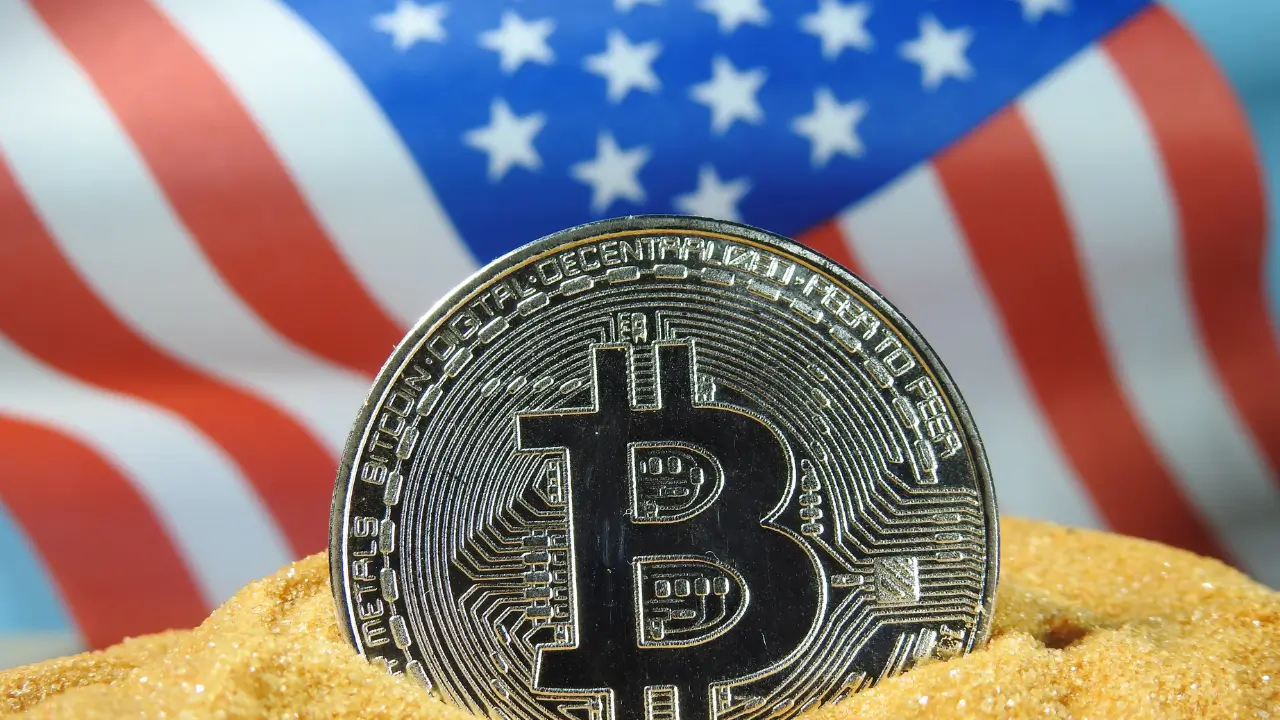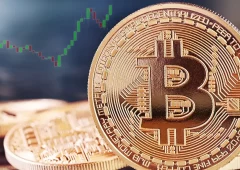Bitcoin Advocate Calls for U.S. to Secure $250 Billion BTC Reserve to Protect Dollar
20.11.2024 15:30 2 min. read Alexander Stefanov
Anthony Pompliano, a prominent Bitcoin proponent, has proposed that the United States allocate $250 billion to create a Bitcoin Strategic Reserve.
His idea involves printing this amount of money specifically to purchase Bitcoin, positioning it as a safeguard against the U.S. dollar’s depreciation. This comes as Bitcoin has recently reached new heights, surpassing $94,000 for the first time.
Pompliano envisions Bitcoin as an essential tool for the U.S. to protect its financial stability, arguing that its limited supply of 21 million coins makes it an ideal hedge against inflation. He believes that the U.S. should lead the way in securing Bitcoin reserves, especially as other countries, such as El Salvador and Bhutan, are starting to embrace it. He also pointed to corporations, like MicroStrategy, that have seen success with Bitcoin investments as a model for national adoption. Pompliano suggested that by acquiring Bitcoin early, the U.S. could control a substantial portion of the global Bitcoin supply.
If the U.S. were to allocate $250 billion to Bitcoin, Pompliano estimates it could acquire about 1.6 million BTC, bringing the nation’s total holdings to around 1.8 million BTC when combined with its existing reserves. This would make the U.S. the world’s largest holder of Bitcoin. This proposal comes at a time when Bitcoin’s role in national reserves is becoming a more widely debated topic among policymakers and financial experts.
While some, including Senator Cynthia Lummis and figures like Michael Saylor and Robert F. Kennedy Jr., have voiced support for a Bitcoin reserve, the proposal has faced mixed reactions. BlackRock has expressed skepticism, while VanEck has shown support. Globally, other nations are also considering similar strategies, with Poland’s Slawomir Mentzen advocating for a national Bitcoin reserve to combat economic instability.
Pompliano’s call to action highlights the urgency of adopting Bitcoin to counteract rising debt and the weakening dollar. He emphasizes that this move would have a minimal financial cost but could yield significant long-term benefits for the nation’s economic future.
-
1
Bitcoin Reaches New All-Time High Above $116,000
11.07.2025 7:56 1 min. read -
2
What’s The Real Reason Behind Bitcoin’s Surge? Analyst Company Explains
12.07.2025 12:00 2 min. read -
3
Canadian Bank Sees Bitcoin Hitting $155,000 by 2025
15.07.2025 10:00 1 min. read -
4
Peter Schiff Warns of Dollar Collapse, Questions Bitcoin Scarcity Model
12.07.2025 20:00 1 min. read -
5
Strategy Claims It Can Weather a Bitcoin Crash to $20K Without Trouble
16.07.2025 14:08 1 min. read
Bitcoin Risk Cycle Flips Again as Market Enters Safer Zone
Bitcoin’s market signal has officially shifted back into a low-risk phase, according to a new chart shared by Bitcoin Vector in collaboration with Glassnode and Swissblock.
Robert Kiyosaki Warns of 1929-Style Crash, Urges Bitcoin Hedge
Financial author Robert Kiyosaki is once again sounding the alarm on America’s economic health.
Metaplanet Adds $92.5M in Bitcoin, Surpasses 17,000 BTC Holdings
Metaplanet Inc., a Tokyo-listed company, has just added 780 more Bitcoin to its treasury. The purchase, announced on July 28, cost around ¥13.666 billion or $92.5 million, with an average price of $118,622 per BTC.
China and U.S. Plan Trade Truce Extension Before Talks: How It Can Affect Bitcoin
The United States and China are expected to extend their trade truce by 90 days. The extension would delay new tariffs and create space for fresh negotiations in Stockholm.
-
1
Bitcoin Reaches New All-Time High Above $116,000
11.07.2025 7:56 1 min. read -
2
What’s The Real Reason Behind Bitcoin’s Surge? Analyst Company Explains
12.07.2025 12:00 2 min. read -
3
Canadian Bank Sees Bitcoin Hitting $155,000 by 2025
15.07.2025 10:00 1 min. read -
4
Peter Schiff Warns of Dollar Collapse, Questions Bitcoin Scarcity Model
12.07.2025 20:00 1 min. read -
5
Strategy Claims It Can Weather a Bitcoin Crash to $20K Without Trouble
16.07.2025 14:08 1 min. read


